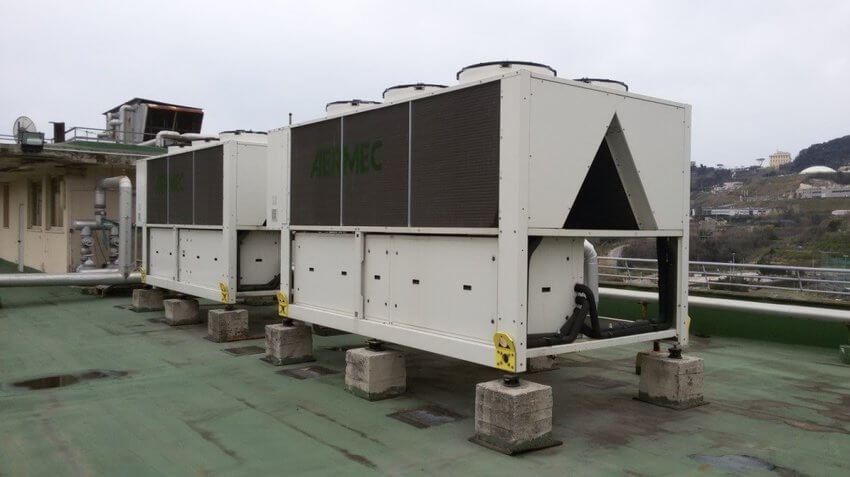Reasons To Enclose Chillers For Noise Control

Chillers For Noise Control
Chillers and cooling towers make excessive noise. A chiller needs to be enclosed for sound control. High humidity is brought on by a lot of water used in outdoor air-cooled chillers, rooftop chillers, and cooling towers. In order to provide proper airflow and control of the humidity level, chiller acoustic enclosures feature a number of air vents. The air vents must be acoustically treated. Acoustic chiller sound enclosures have been designed specifically with sound bafflers that allow free airflow while keeping noise levels low.
Reasons Why Chillers Make Noise
Chillers generate noise with low to high frequencies, which ranges from minimal to uncomfortable and potentially harmful to people’s hearing. In general, any machinery with moving parts will make noise, but this is not the case with chillers. Basically, chillers make noise because of the air that circulates inside the device. As the fans move around, cut through the air, and send it into the condensation chamber, they make a high-pitched noise that can hit the ears. People, residences, and other buildings nearby will experience noise pollution if there isn’t a chiller sound wall blocking these noises.
Importance of Acousting Chiller Noise
Sound pollution from chiller units can be a significant concern, especially when complaints start to come in. The following are some of the repercussions that companies may have to face for not having chiller sound enclosures:
Violation of Noise Restrictions
Most communities in the United States have laws and policies that regulate environmental noise. Furthermore, in the absence of regulatory rules at the local level, complaints can be filed as per the IFC’s (World Bank’s International Finance Corporation) noise guidelines.
Causes Tension With Nearby Community
Making enemies with the next-door neighbors is never a good idea. It’s better to get along with nearby communities than battle with them constantly because of the inconvenience caused by the chillers’ sound. It’s important to remember that working in harmony with neighboring companies will enhance security and the image of the organization.
Employee Discomfort
Engineers and other staff who are working near a chiller are often forced to put up with the loud noise it produces. Even if the levels of noise are below unsafe thresholds, ongoing vibrations can create discomfort and significantly reduce the desirability of the workplace.
Causes Significant Disturbance
Vibrations caused by noise pollution can be felt across an entire building. Even if the chiller is located on one end of the roof, occupants on the opposite side of the building can still complain about noise and vibration problems.
Conclusion
These effects can have no direct impact on business, but they can have an impact on the employee’s productivity and the business’s reputation. Staying away from these issues will safeguard the company in the long run. As a solution for regulating noise created by chillers, companies can consider embracing the acoustic technology of chiller sound enclosures with sound-absorbing panels. These are specifically made for industrial noise control with proper sound-block fencing to absorb sound.







